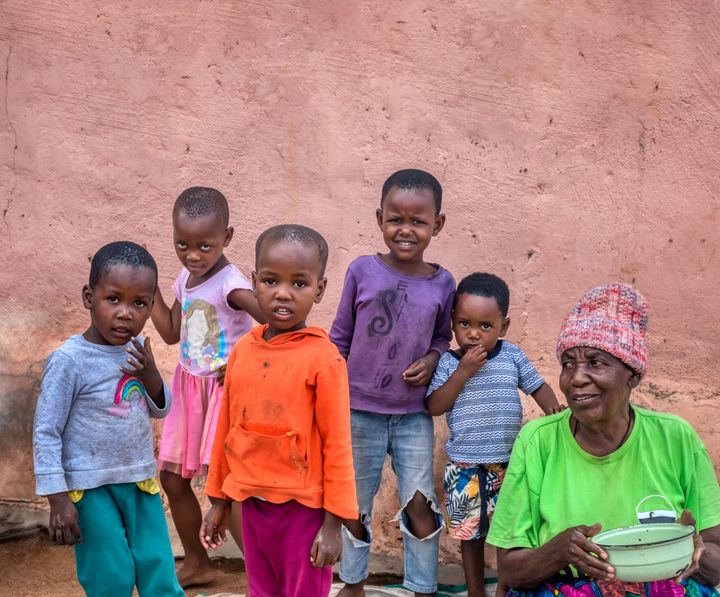Children's gut bacteria may hold the key to diarrhea treatment
13.11.2024 08:27:28 CET | Københavns Universitet | Pressemeddelelse
Diarrhea claims the lives of 500,000 children each year in low- and middle-income countries. Now, Danish and Ethiopian researchers have linked chronic diarrhea to a specific pattern of gut bacteria, a discovery that could pave the way for new treatments capable of saving lives.

Our intestines are home to a microbiotic universe in which bacteria train our immune systems to be resilient, produce vitamins and transform the foods that we consume into beneficial compounds. Imbalances in this gut microbiome can be linked to various illnesses, including obesity, diabetes and diarrhea.
In developing countries, acute and chronic diarrhea is a widespread problem among children and leads to the deaths of half a million children under the age of five every year. Acute diarrhea often resolves on its own and can typically be treated with antibiotics. But once it progresses to a chronic form, it can leave children severely ill and underdeveloped, making treatment much harder. Until now, the cause of chronic diarrhea has remained unclear.
"Persistent diarrhea in adults can be extremely unpleasant but is rarely life-threatening. However, for a child, it can have lifelong consequences. While acute diarrhea has become much more treatable over the past fifty years, little progress has been made in treating the chronic type, which is what sparked our interest," explains Dennis Sandris Nielsen, a professor at the University of Copenhagen’s Department of Food Science.
In a new study published in Nature Communications, Nielsen and his Ethiopian colleague Getnet Tesfaw mapped the gut microbiome of over 1,300 children under five years of age in Ethiopia. The study’s main conclusion is clear: children with chronic or persistent diarrhea have significantly lower and different bacterial diversity compared to healthy children.
"Our results show a clear link between gut bacteria composition and the duration of diarrhea. Children with chronic diarrhea not only have more harmful bacteria, but notably fewer beneficial ones," explains Tesfaw, who will defend his PhD thesis on the topic later in November.
A vicious cycle of diarrhea
Researchers used DNA sequencing to identify various beneficial and harmful bacteria in stool samples. Results indicate that children with chronic diarrhea have an overrepresentation of harmful bacteria, such as Escherichia and Campylobacter, while the presence of beneficial bacteria, such as Faecalibacterium, is significantly reduced.
The study also revealed that children with chronic diarrhea lack bacteria that produce short-chain fatty acids, which are typically produced by beneficial bacteria and play an essential role in gut health.
Acute diarrhea is defined as lasting from one to six days, while chronic diarrhea persists for a week or more. According to Nielsen, the results indicate that chronic diarrhea develops if beneficial, short-chain fatty acids producing microbes are lost to an extent that the children's gut microbiomes for unkonwon reasons fail to recover from after for instance antibiotic treatment for acute cases.
"The progression into persistent diarrhea seems to be driven by a loss of beneficial bacteria. We do not yet know the exact cause, but we speculate that while antibiotics may be necessary to treat acute diarrhea, they also kill off good gut bacteria. As a result, children may enter a vicious cycle where chronic diarrhea takes over because they don’t consume the right foods to restore these beneficial bacteria," the researcher explains.
Local "superfood" to the rescue
The new mapping of gut bacteria in children with chronic diarrhea offers a deeper understanding of the problem's causes and makes it easier to develop new, targeted treatments that could restore a healthy gut microbiome.
According to Tesfaw, the primary focus of treatment should be on designing an optimal diet to help restore the microbiome in affected children. Ideally, this diet would be familiar to the local population, accessible and sustainable. The researchers already have a potential main ingredient in mind.
"In Ethiopia, they have a superfood grain called teff, which is rich in nutrients and fiber. It clearly has the potential to serve as a dietary supplement that could help stop chronic diarrhea," says Nielsen.
However, further studies are needed, and the researchers hope to secure funding for a new research project in the near future.
Contact:
Dennis Sandis Nielsen
Professor Department of Food Science
University of Copenhagen
dn@food.ku.dk
Tel: +4535333287
Mob: +4551330362
Michael Skov Jensen
Journalist and Team Coordinator
Faculty of Science
msj@science.ku.dk
+45 93 56 58 97
Følg pressemeddelelser fra Københavns Universitet
Skriv dig op her, og modtag pressemeddelelser på e-mail. Indtast din e-mail, klik på abonner, og følg instruktionerne i den udsendte e-mail.
Flere pressemeddelelser fra Københavns Universitet
Algoritmer afslører nye sider af det moderne gennembruds litteratur3.2.2026 13:16:47 CET | Pressemeddelelse
Forskere fra Københavns Universitet har digitaliseret 850 romaner fra det moderne gennembrud (1870-1900) og analyseret dem ved hjælp af algoritmer og AI. De kan nu vise, at perioden gemmer på en række oversete værker, der behandler temaer som køn og religion på overraskende måder.
Ny forskning: Styrket tidlig indsats giver markant færre ordblinde elever2.2.2026 09:50:41 CET | Pressemeddelelse
Et nyt undervisningsprogram målrettet elever i 1. klasse med øget risiko for ordblindhed har stor positiv effekt, viser en ny undersøgelse ved Center for Læseforskning på Københavns Universitet. I 3. klasse var andelen af ordblinde betragteligt lavere blandt de elever, der havde deltaget i det nye undervisningsprogram sammenlignet med eleverne i kontrolgruppen.
Vores tvivl på egne valg skyldes forskellige mekanismer30.1.2026 05:00:00 CET | Pressemeddelelse
Vi mennesker kan tvivle på os selv – også når vi præsterer bedre eller lige så godt som andre. Ny forskning viser, at tvivlen opstår på forskellig vis, blandt andet afhængigt af, om man er kvinde eller mand, og om man har tilbøjelighed til angst eller ej.
Lavsbundsjorde skal ikke stå under vand for at give størst klimagevinst29.1.2026 08:51:59 CET | Pressemeddelelse
Stik imod forventningen skal lavbundsjorde ikke oversvømmes helt for at give den største klimagevinst. Vandspejlet skal derimod være under jordoverfladen og ligge stabilt, viser et nyt studie fra Københavns Universitet. Drivhusgassen metan og mikroorganismer i jorden er en game changer.
Frygt for karrieren driver – og vælter – brutale regimer20.1.2026 20:30:00 CET | Pressemeddelelse
Ny forskning viser, at ambitioner og angst kan forvandle ’almindelige mænd’ til et regimes hensynsløse håndlangere – eller dets omvæltere. Det er nemlig karrierepres – ikke ideologi – der får militærofficerer til at beskytte eller vælte diktatorer.
I vores nyhedsrum kan du læse alle vores pressemeddelelser, tilgå materiale i form af billeder og dokumenter samt finde vores kontaktoplysninger.
Besøg vores nyhedsrum